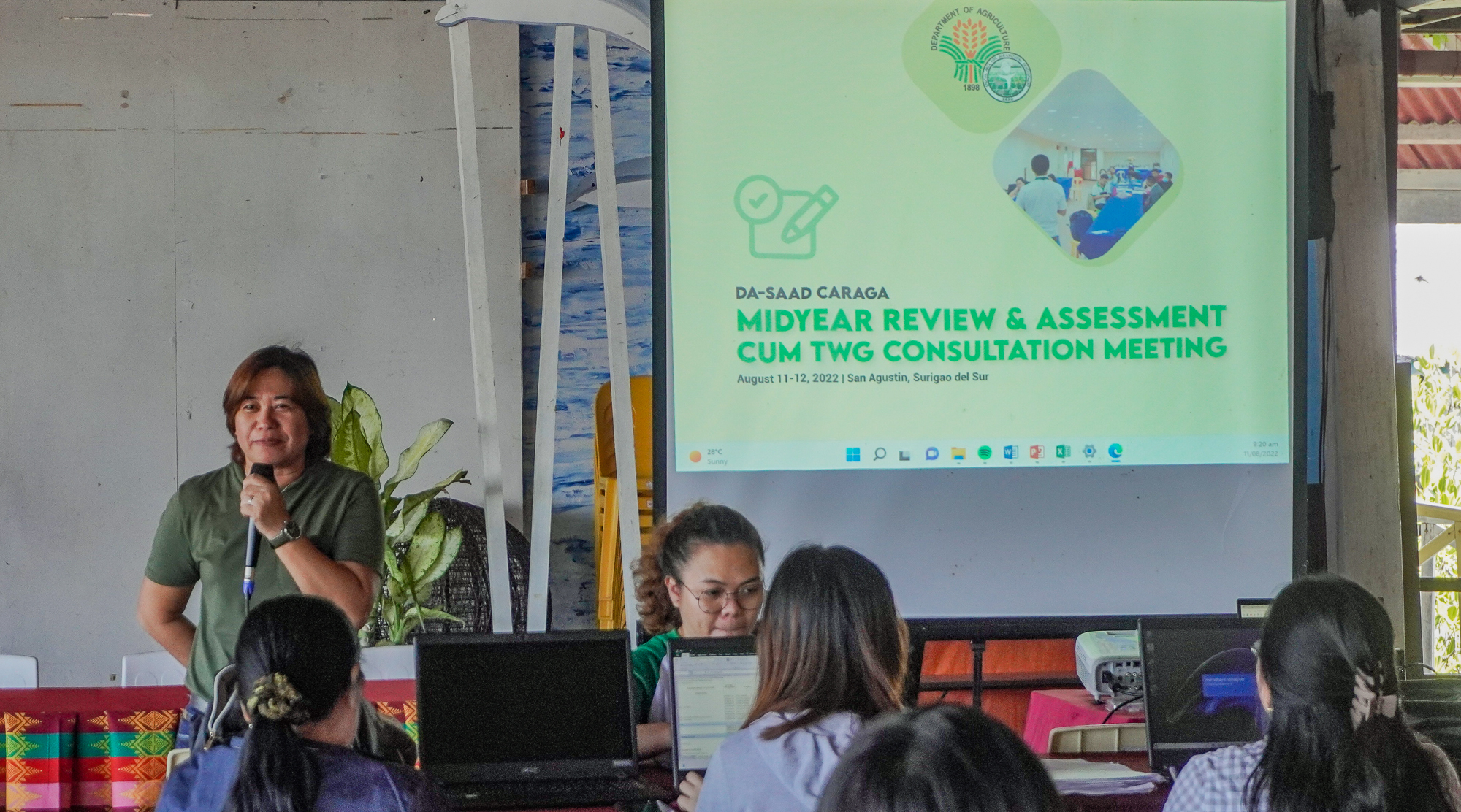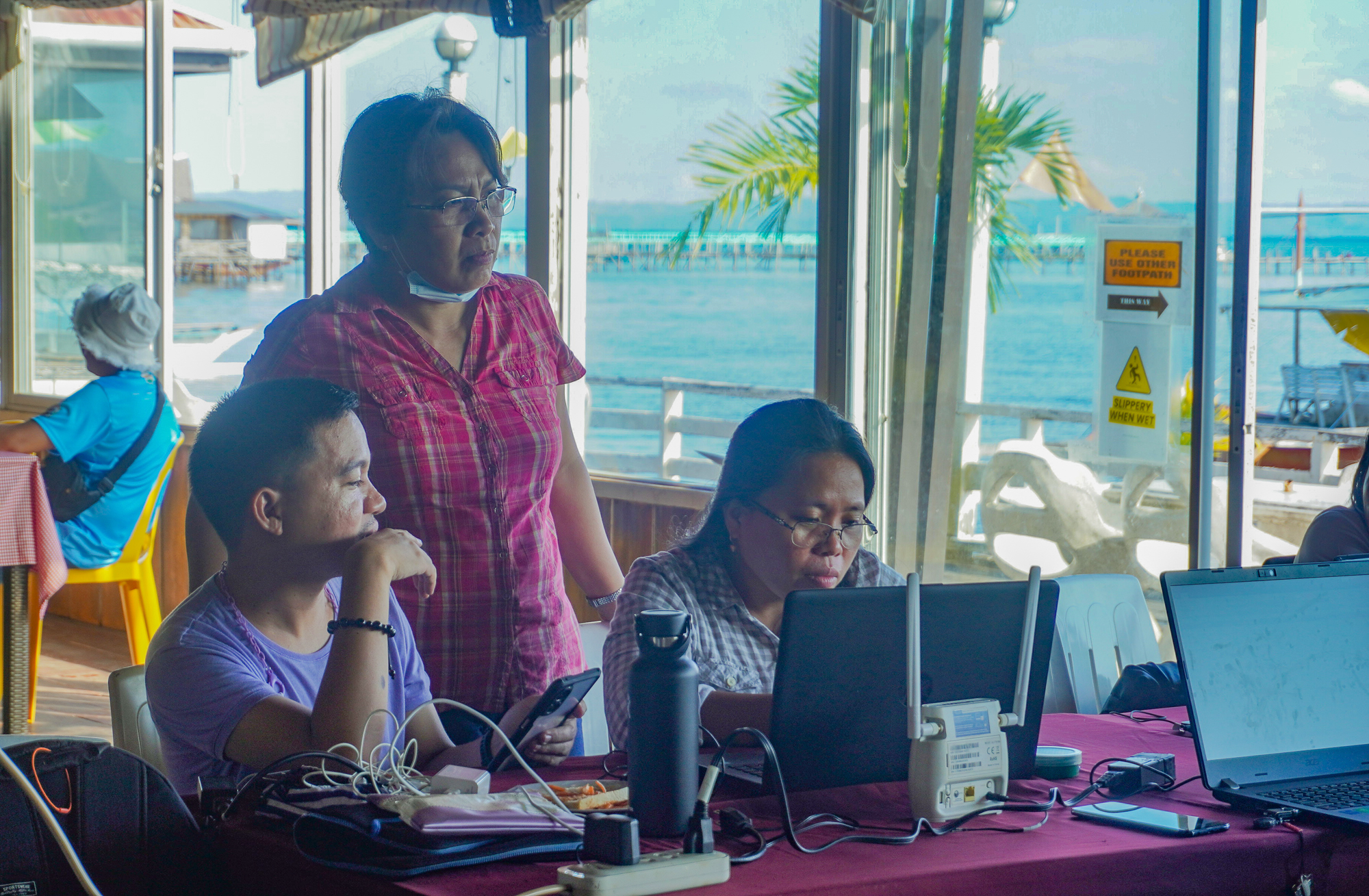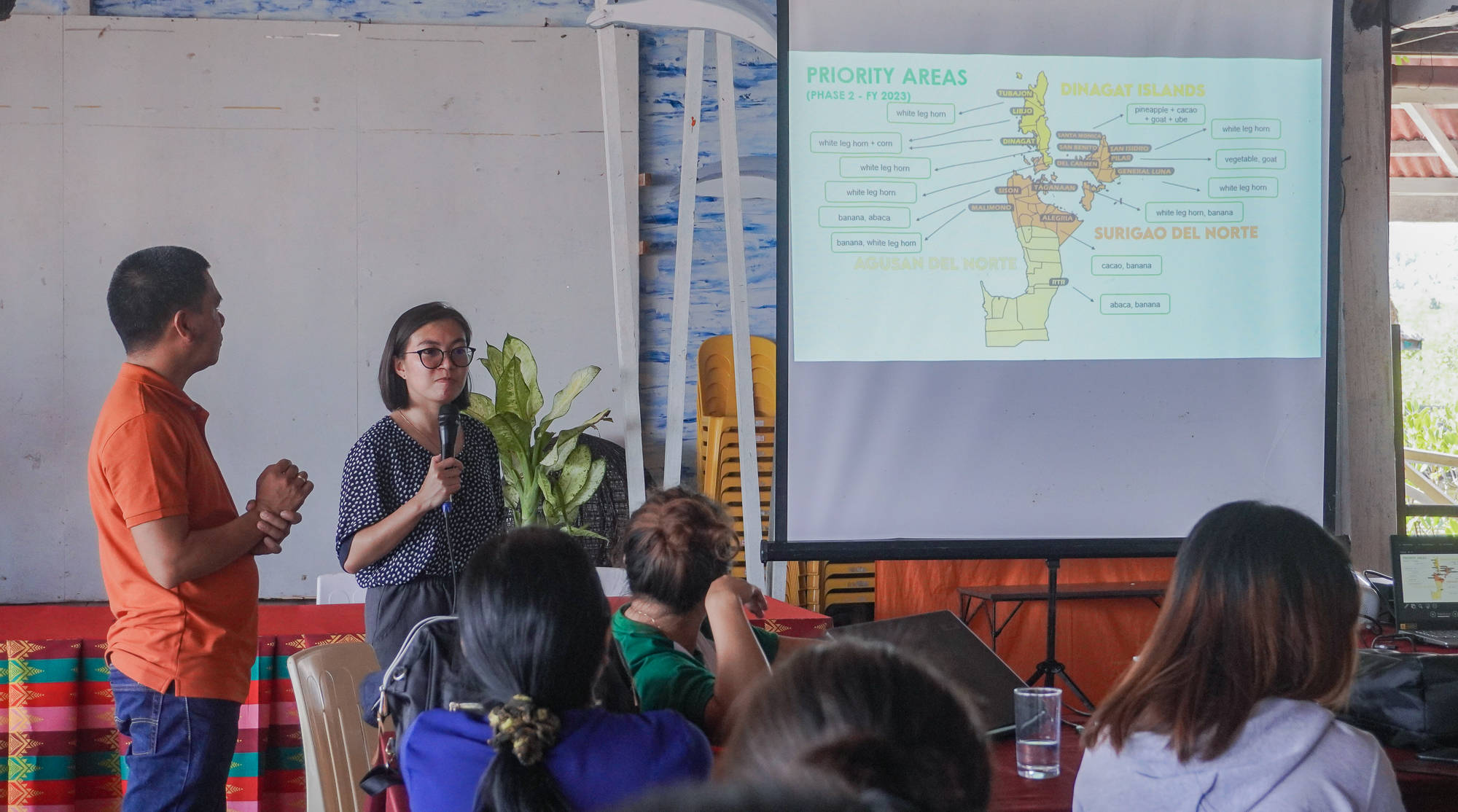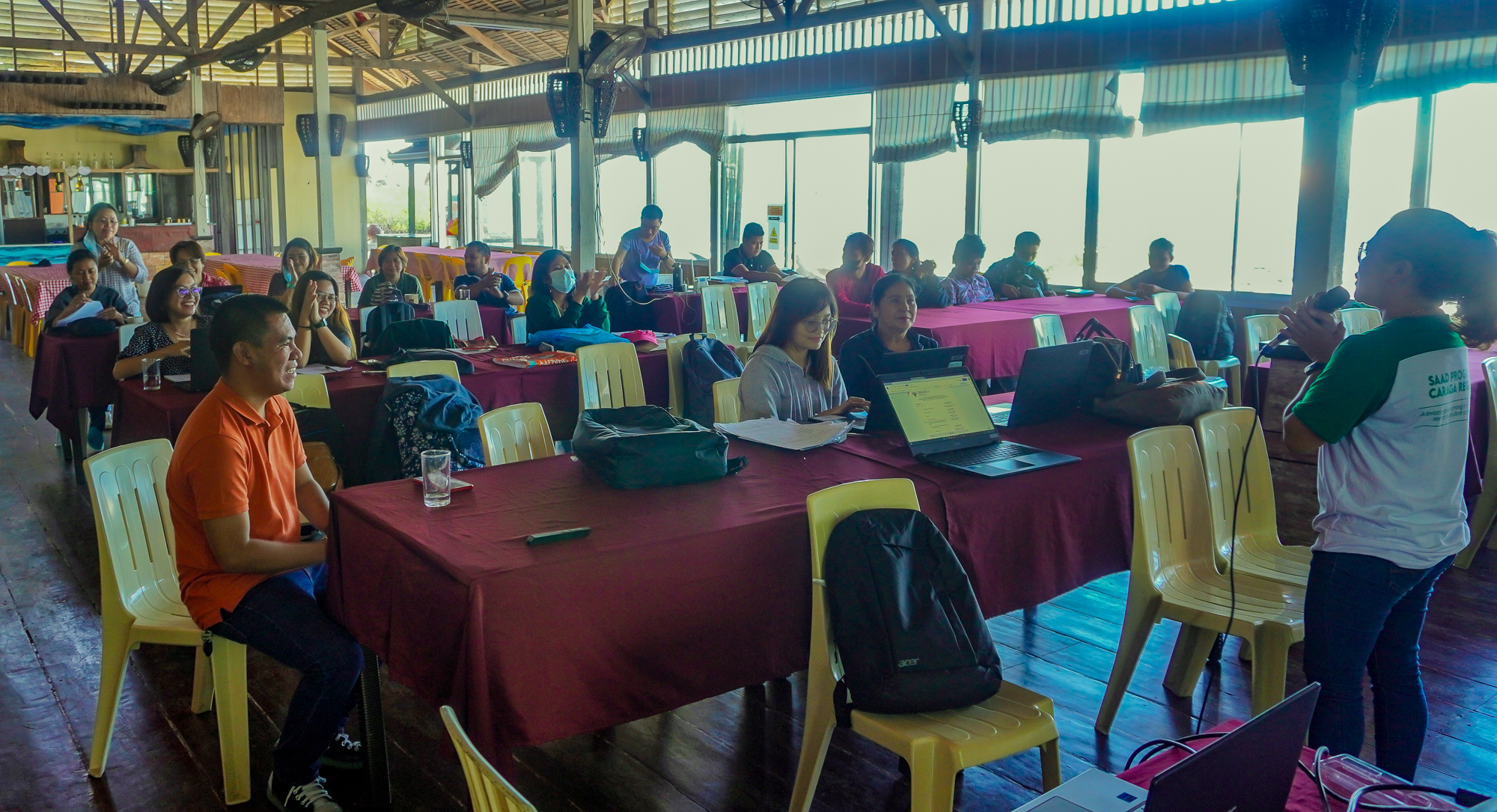SURIGAO DEL SUR, August 23, 2022 – The Department of Agriculture- Special Area for Agricultural Development (DA- SAAD) Program Caraga capped off first semester implementation, highlighting 67 training accomplished on crops and animal production, and people’s organization development; accomplishing 72% on financial obligation and 91% achievement rate of physical targets.
The region executed 29 out of 32 projects targeted this year. These projects include poultry and livestock production such as white leghorn, native chicken and goat; industrial crops such as abaca and cacao; grain crops, such as corn and rice; and root crops, such as sweet potato and ube. As of August 2022, there are 1,106 beneficiaries and 32 farmers’ associations (FAs) that benefited from the line of SAAD projects.
Among the program’s major accomplishments include conducting provincial stakeholders’ consultation in April, which enabled the 32 assisted FAs to craft their sustainability and action plans for FY 2023 onward. In the long run, FAs are expected to become cooperatives and established suppliers of agricultural products in their local and neighboring municipalities.
Upon conclusion of the program, the 2023 implementation will focus on crafting the FAs’ sustainability plans to strengthen market and agency linkages and introduction to other state or non-state operated institutions to gather support from local government units, including seeking relative inputs and technical support to extend the entrepreneurial endeavors of the FAs.
Further, from February to May, the region facilitated 67 training relative to (1) social preparation, such as organizational development, values formation, and financial management; (2) specialized/technical skills related to animals and crops production; and (3) marketing assistance and enterprise development, such as product development, market identification, postharvest technology, processing, and harvesting.
Majority of these training center on production management, especially for big-ticket projects such abaca and cacao production that require sustained care and maintenance. Training on value-adding and product development were also covered, particularly in sweet potato and ube production.
Relative to the Phase 2 implementation, covering Surigao del Norte, Dinagat Islands, and Agusan del Norte, the regional team also conducted pre-entry meetings with the 14 target municipalities. In coordination with the municipal agriculture offices (MAOs), the program planned to establish 28 FAs in areas with high poverty incidence and were devastated by Typhoon Odette in 2021, mostly near coastal zones.
Field Operations Division OIC-Chief Melody M. Guimary led the activity and extended her gratitude to the team for its contribution to the overall goal of the DA. She also encouraged the staff to put the farmers’ interests at the forefront of intentions, especially during the planning stage.
“Nalipay ko nga apil ang SAAD Program sa pagtabang sa mga mag-uuma sa Caraga. Padayon lang ta sa atong misyon isip usa ka department nga mao ang padayon nga makatabang sa atong mga mag-uuma. Sa atong pag plano, dapat siguradohon nato ang ilang mga interes aron epektibo ang pag-address sa ilang mga paninahanglanon,” she said.
(I am glad that we have the SAAD Program as one of our partners in extending support to our farmers. Let us continue our mission as one department that is to be of aid to our farmers. In planning, let us consider their interests to effectively address their needs.)
The deliverables of the region for the remainder of the year include profiling of the farmers to be transmitted to the national information database. The staff will also lead another round of consultation meetings with stakeholders in September to plan the turnover of 32 livelihood projects of assisted FAs to LGUs in 2023. Endorsement to the DA regular banner programs is also in the works for possible additional support and complementation. ###
Writer: Mark Angelo Pineda, Region 13 Information Officer





Comments (0)